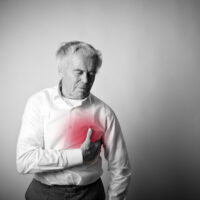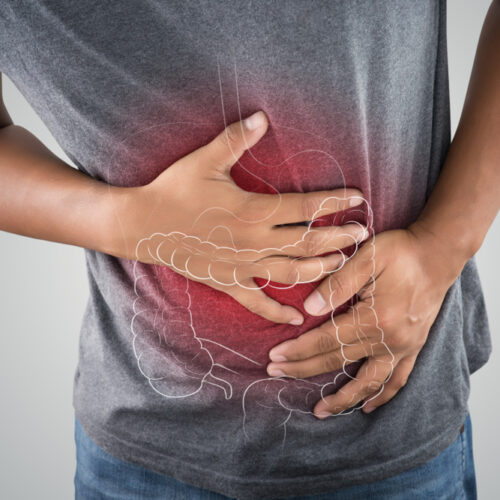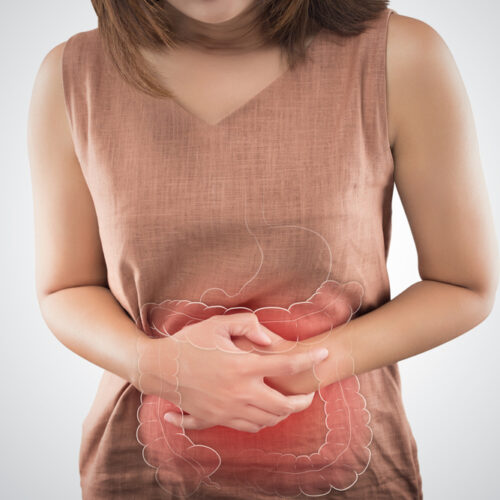Common Causes and Symptoms of Crohn’s Disease
Crohn’s disease is a chronic condition of Inflammatory Bowel Disease (IBD) that is characterized by inflammation of the gastrointestinal tract and the digestive tract. The disease can affect any part of the gastrointestinal tract, from mouth to anus, however, is generally found to affect the last segment of the small intestine where it meets the beginning of the large intestine (colon).

Crohn’s symptoms and signs may vary from person to person. For a few, it might be mild, for a few it might be irritating. Some can feel pain, and for others, it can be debilitating. Also, the symptoms can change over time. The Crohns symptoms and signs can be treated, but the condition cannot be cured.
What causes Crohn’s disease?
The causes of Crohn’s disease are not known; however, a combination of factors is said to influence your chance of contracting the condition. The factors that increase the risk factors are genetics, environment, and an overactive immune system. Up to 20 percent of people with Crohn’s disease also have a parent, sibling or child with the disease. A few things that aggravate the Crohn’s symptoms and signs are age, stress levels, and smoking habit. It is to be noted that Inflammatory Bowel Disease (IBD) and Irritable Bowel Syndrome (IBS) are not the same and having been diagnosed with one does not lead to the other.
Who is affected by the disease?
Men and women are equally affected by the condition. Crohn’s disease may start at any age and is generally seen to affect people between 15-35 years of age. Nonetheless, Crohn’s disease can affect young children and infants as well. Psychological and emotional factors must always be considered in young people with Crohn’s disease.
Common Crohn’s symptoms and signs
Abdominal pain and diarrhea are the most common symptoms of Crohn’s disease. Other symptoms of inflammation include abdominal tenderness and fever. The consumption of food is reduced, and this leads to weight loss and other nutritional deficiencies.
What symptoms can help in diagnosis?
Although it is not difficult to diagnose the conditions, the large variation in severity of symptoms, from mild to severe and non-specific nature of the signs can resemble another disease. So, it tends to become confusing. For example, diverticulitis also has intestinal inflammatory symptoms, so it makes diagnosis challenging.
The family history of Crohn’s disease and pattern of the symptoms are fundamental in the determination of the condition.
Stool may be tested for signs of inflammation such as white blood cells or blood. Fever and an increased count of white blood cells in the blood may hint at probable inflammation in the body somewhere.
Crohn’s symptoms and signs
- Diarrhea – This is a common problem for people with Crohn’s disease. Increased intestinal cramping also can give loose stools.
- Fatigue and fever – Many people with Crohn’s disease experience a low-grade fever which occurs mainly due to infection or inflammation. You may also feel extremely fatigued.
- Cramping and abdominal pain – Ulceration and Inflammation can alter the natural movement of contents within your digestive tract and may lead to cramping and pain. You may encounter anything from a slight discomfort to intractable pain, including vomiting and nausea.
- The presence of blood in your stool – You might observe clear red blood during bowel movements or darker blood associated with your stool. You might also have bleeding which is not visible. This kind of spill is known as occult blood.
- Sores in mouth – Similar to canker sores, you may have ulcers in your mouth.
- Weight loss and reduced appetite – The inflammatory effect on the lining of your bowel can influence both your ability to digest and absorb food, affecting the appetite.
- Perianal disease – You might have drainage or pain around or near the anus due to infection from a tunnel into the skin. This is known as the fistula.
Sometimes, Crohn’s symptoms and signs are mistaken for other condition, such as an upset stomach, food poisoning, or an allergy. You should see your doctor if these symptoms persist. Other Crohn’s symptoms and signs include Inflammation of the bile ducts or liver, Inflammation of eyes, skin, and joints, and a delayed growth in children.
Mild to moderate symptoms
Frequent abdominal pain, diarrhea, high fever, tenderness of the abdomen, Intestinal obstruction, painful mass, and weight loss indicate that the severity of the disease is mild to moderate.
Moderate to severe symptoms
Frequent abdominal pain, diarrhea, signs of significant anemia and shortness of breath, fatigue, and headache, and dizziness signify a moderate to severe Crohn’s disease.
Severe symptoms
When it is severe, you will experience constant vomiting, high fever along with the other symptoms.
Staying aware of the symptoms will help you undertake medical treatments accordingly. Crohn’s disease is a chronic condition that cannot be cured completely. However, several treatments are available to treat the symptoms, thus enabling you to manage the condition.











